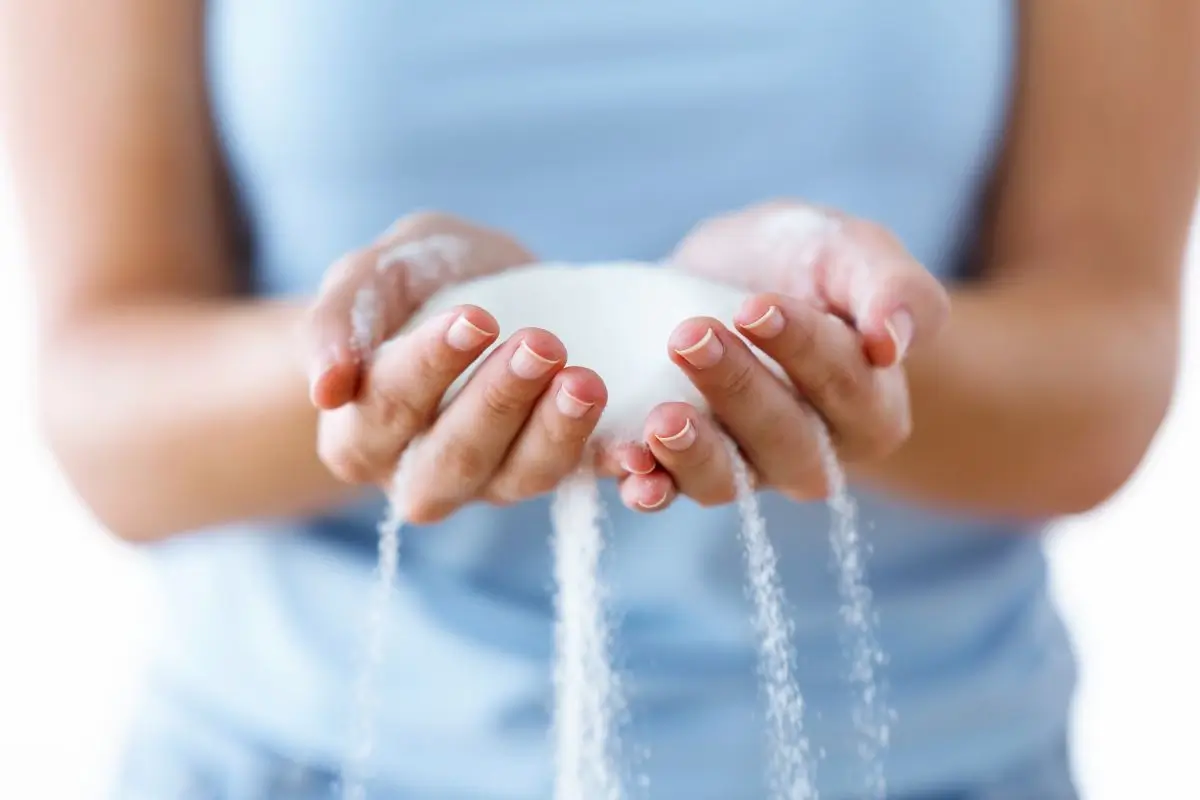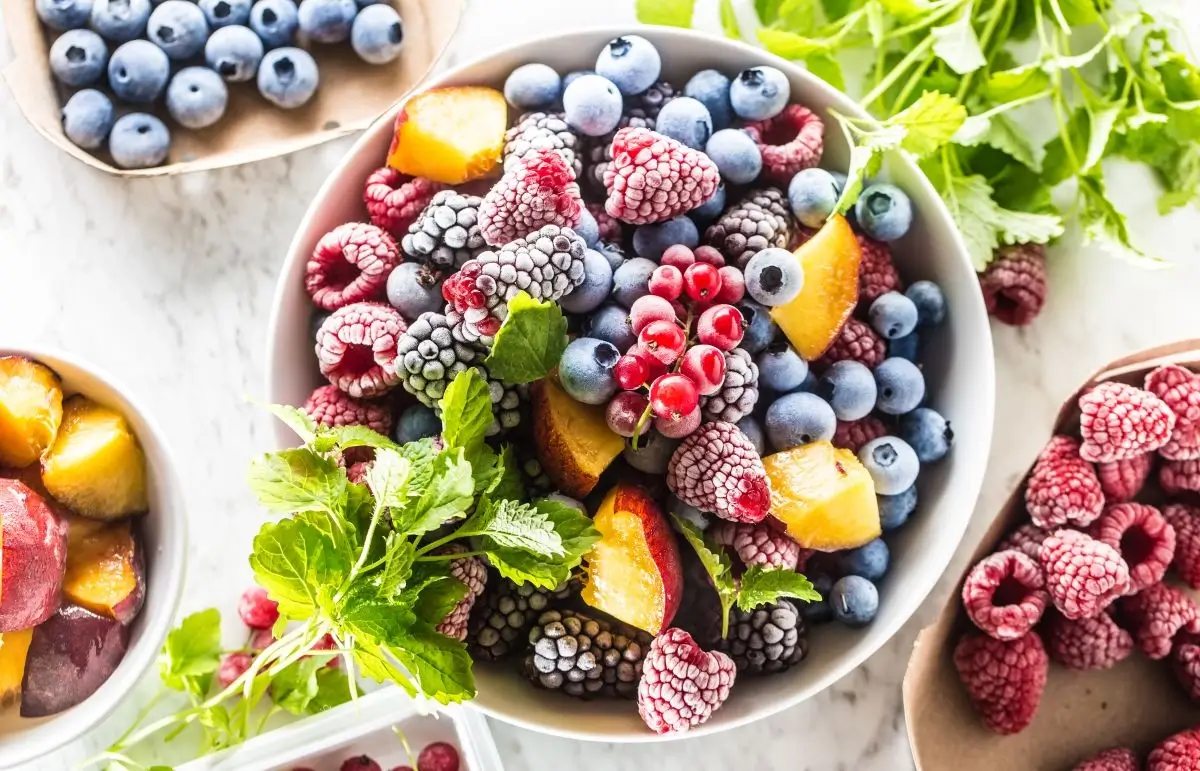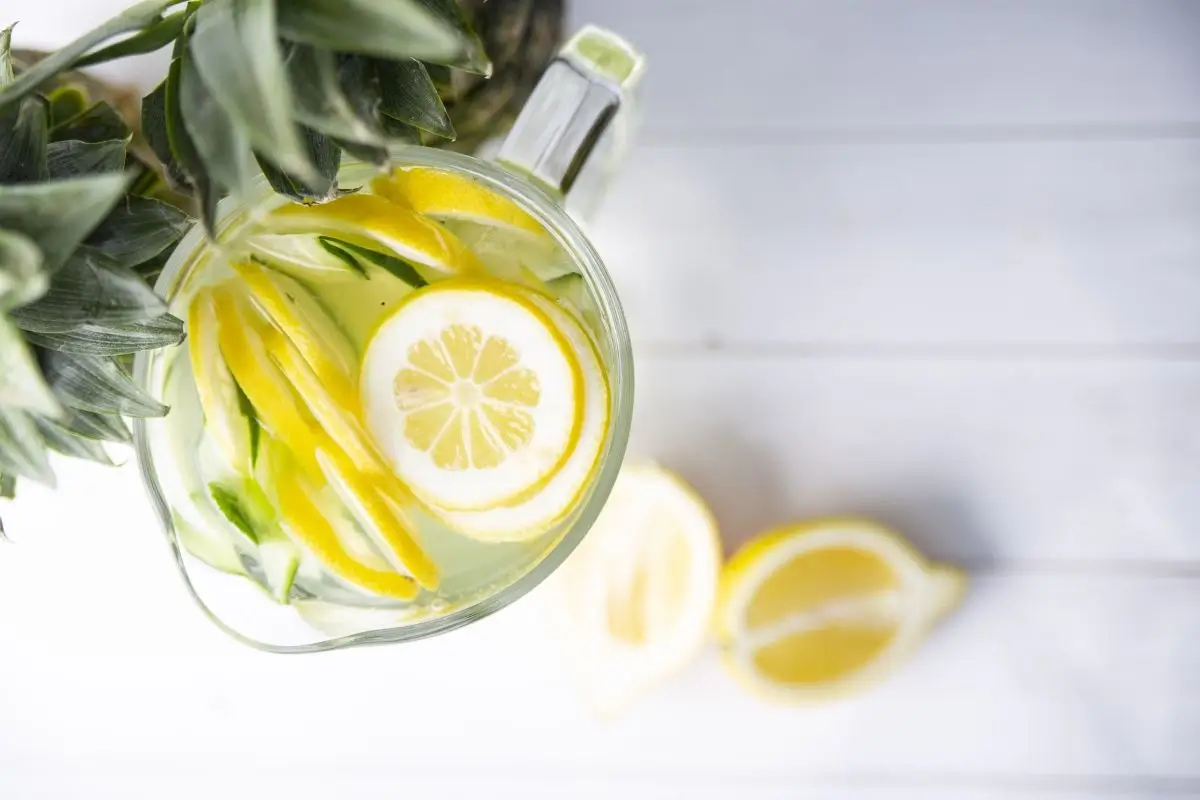Vitamin and Mineral Needs Vary by Gender. Women, due to differences in lifestyle, motherhood, and dietary habits, require different supplements than men.
Among the nutrients particularly beneficial for women are herbal extracts and folic acid. Vitamins C and E have strong antioxidant properties, meaning they protect body cells from the harmful effects of oxidative stress. Vitamins B6 and B12 play a crucial role in blood formation processes—they are essential for the production of red blood cells. Women planning for motherhood will appreciate the positive impact of zinc on fertility.
The Modern Woman’s Lifestyle Does Not Support Balance
In today’s fast-paced world, many women juggle multiple, often extreme roles, striving to maintain balance, mental well-being, and a polished appearance at the same time.
Balancing personal and professional life is incredibly challenging, especially for ambitious and self-demanding women who often refuse to give up any of their roles. Society adds even more pressure. Unfortunately, facts and reality are rarely reflected in mass culture, which—whether we like it or not—shapes social expectations and perceptions to a large extent.

Being a Successful Businesswoman While Maintaining Balance
In reality, it is incredibly challenging to be a successful businesswoman while simultaneously taking proper care of a large family, creating an environment that fosters relationships, and doing all of this with a smile, in good health, and in excellent physical condition.
Women, overwhelmed by daily responsibilities, often forget about themselves and tend to prioritize the well-being of their loved ones over their own. As a result, they may struggle with deficiencies in essential vitamins and minerals, which directly impact their overall well-being.
Differences in Vitamin and Mineral Needs Based on Gender
Vitamin deficiencies are common in society. Depending on diet, age, lifestyle, and even location, nutritional needs can vary significantly.
Numerous studies conducted in Poland over the years indicate that vitamin and mineral levels differ based on region and socioeconomic status. However, given the social and economic changes of the past decade, one might assume these factors have lost relevance. Is this really the case? The answer isn’t so straightforward.
A study conducted among Warsaw residents (both men and women) revealed significant deficiencies in essential micronutrients and vitamins necessary for proper bodily function. The researchers used a three-day food record method.
What does this method involve?
Scientists asked participants to log their food intake, including portion sizes, following detailed guidelines. This made it possible to estimate the intake of nutrients, vitamins, and minerals. A well-balanced diet should provide all essential nutrients—proteins, fats, carbohydrates, vitamins, and minerals.
Study Findings
The results showed that the diet of Warsaw residents who participated in the study was nutritionally unbalanced:
- The intake of vitamin B1 was approximately 40% lower than the recommended level.
- The intake of vitamin C, B2, PP, and B6 was also insufficient—20-30% lower than the recommended daily intake for the Polish population.
If you want to maintain a healthy lifestyle, focus on proper nutrition and physical activity first. Increase your intake of water, vegetables, fruits, and high-quality protein sources. Make sure your diet includes dairy products and unprocessed carbohydrates, such as whole grain bread and grains.
Dietary habits are closely linked to gender differences. It is commonly believed that despite juggling multiple roles, high stress levels, and time constraints, women naturally consume sufficient vitamins and minerals.
However, the findings from the study “Dietary Habits of Men and Women Aged 30+” by Edyta Suliga suggest that both men and women may have inadequate vitamin and mineral levels. Regardless of gender, it is important to assess and adjust your dietary habits. Adding extra servings of fruits and vegetables to daily meals can significantly improve well-being.
Essential Vitamins for Women – Which Ones Matter Most?
As mentioned earlier, vitamin and mineral requirements differ based on gender. Some vitamins are equally important for both men and women, including:
- Vitamin C – plays a crucial role in the immune system, but its benefits extend beyond that. It helps reduce fatigue, supports mental well-being, and protects against oxidative stress. Studies also show that vitamin C aids in regenerating the reduced form of vitamin E.
- Vitamin E – like vitamin C, it actively protects cells from oxidative stress.
- Selenium – particularly beneficial for women striving for healthy hair and nails. Selenium supports immune system function and thyroid health, and, like vitamins C and E, helps protect cells from oxidative stress.
- Vitamin B6 – plays a key role in cysteine synthesis, supports energy metabolism, red blood cell production, and mental function, and contributes to a strong immune system.
- Vitamin B12 – essential for cell division and red blood cell production. It also helps combat fatigue and exhaustion, making it crucial for maintaining energy levels.
- Zinc – helps maintain vision, supports cell division, protects against oxidative stress, and boosts immunity. Women planning pregnancy will appreciate zinc’s role in fertility and reproductive health, as it is essential for DNA synthesis.

Thick Hair, Strong Nails – Discover the Power of Herbs
Firm skin and thick hair are attributes that many women consider essential to femininity. The passage of time and an unhealthy lifestyle can negatively affect the condition of the skin and hair. Many women turn to high-tech dermocosmetics for active ingredients, but unfortunately, their effects are limited to the outer layers of the skin.
Horsetail is an herb that has been known for decades for its positive effects on hair and nails. Years ago, it was common practice to collect horsetail growing along roadsides, dry it, and brew it into tea, which, when consumed regularly, supported the health of hair, skin, and nails.
Horsetail remains valued by women, pharmacists, and specialists looking for plant-based ingredients to enrich diets and cosmetic formulations.
However, due to worsening environmental conditions and significant pollution, gathering and brewing wild herbs is no longer recommended. The areas where they grow may be contaminated with heavy metals and other pollutants. Plants growing in polluted environments can accumulate harmful substances and release them into teas and herbal extracts.
If you want to harness the power of plants, choose a pharmacy-grade supplement. A horsetail extract supplement can significantly improve hair and nail health.
By choosing a multivitamin supplement that already contains horsetail extract, you get all the necessary ingredients in one convenient form.
How to Choose the Right Vitamins for Women?
Today, women play multiple roles simultaneously. This requires constant focus, attention, a great deal of energy, and a high level of commitment. The fast pace of life and numerous responsibilities make women seek convenient, comprehensive solutions. They want to care for both their health and beauty while ensuring they receive all the essential vitamins.

Choose a Supplement You’ll Remember to Take Daily
When selecting a vitamin supplement, consider your habits, time management, and daily responsibilities. Most women don’t have enough time to remember multiple supplements every day. They may take them regularly for a few days but then forget due to overwhelming daily tasks, leaving their vitamin levels unbalanced for months.
The key to maintaining the right levels of vitamins and minerals is diet, but as population studies show, many people’s diets are far from ideal. In the daily rush, preparing meals and eating regularly can feel like an impossible challenge.
The good news is that implementing small changes in habits, shopping routines, and meal preparation can make it easier to manage nutrition and reduce the risk of vitamin and mineral deficiencies.
Remember, a healthy lifestyle starts with a proper diet. However, if you decide to support your body with vitamin supplements, consistency is key to their effectiveness. Women who struggle with consistency and often forget to take their vitamins regularly may find multivitamin supplements a better option—taking just one supplement daily makes it easier to ensure proper vitamin and mineral intake.
Choose a Convenient Supplement Form
Many people have difficulty swallowing large tablets. Some vitamin or herbal extract supplements come in large, hard-to-swallow pills. In a busy daily routine, it’s important to choose vitamins in a form you’re comfortable with.
Don’t choose vitamin formulations that you’ll avoid because of their form. Instead, opt for vitamins in a way that suits you, such as effervescent tablets, which dissolve quickly in water and have a pleasant fruity taste.
Avoid Supplements with Added Sugar
Every day, your diet provides not only essential nutrients that benefit your health but also unnecessary additives.
Perhaps the most common of these is sugar. Sugar is found in processed foods, sweets, fruits, and beverages. A closer look at everyday products in stores is often disappointing—sugar is even added to spices and savory ready-made meals. You wouldn’t expect to find it there, would you?
Unfortunately, a high intake of simple carbohydrates in the diet can negatively impact your well-being. When choosing a supplement designed to support your health and beauty, check the label for unnecessary additives. If you’re craving something sweet, stick to fresh fruits or homemade treats that use sugar alternatives like xylitol or stevia.

Common Vitamin C
There is a widespread belief that with the year-round availability of fresh fruits and vegetables, vitamin C deficiency is no longer a concern. While it’s true that severe deficiencies are now rare, some individuals—especially those who avoid fresh produce—should take a closer look at their meals and reassess their dietary habits.
The quality of the fruits and vegetables you consume is crucial. If you are particularly mindful of preventing vitamin C deficiencies, you should know that its content in produce can vary. It depends on the season, the growing conditions (sun exposure, temperature, length of the growing season, etc.), and your food preparation habits.
To minimize nutrient loss, try freezing fruits you plan to eat later. Avoid peeling them too early, and when cooking, add them directly to boiling water—this reduces the time they spend in water and helps preserve more of their vitamin C content.

What Is the Daily Requirement for Vitamin C?
For an adult, the daily recommended intake of vitamin C is 80 mg. This value remains constant for all adults. However, smokers and highly active individuals, such as professional athletes, may have lower levels of vitamin C. This is because it is either flushed out of the body (in athletes) or absorbed with difficulty (in habitual smokers).
If you fall into one of these categories, pay special attention to whether your vitamin C levels are adequate.

What Are the Sources of Vitamin C?
Vitamin C is primarily found in fruits and vegetables. It is commonly believed that sour citrus fruits, such as lemons, are the best sources of vitamin C. However, in reality, many other fruits and vegetables contain even higher amounts of this essential nutrient—for example, sweet strawberries and… bell peppers!

Small amounts of this nutrient can also be found in meat and dairy products. Below is a table highlighting some dietary sources of vitamin C—consider incorporating them into your daily menu:
| Nutrient ingredient | Vitamin C content in mg/100 g of fresh product |
| pepper | 125–200 mg |
| strawberries | 46–90 mg |
| parsley leaves | 269 mg |
| rosehips | 250–800 mg |
| Brussels sprouts | 65–145 mg |
| blackcurrant | 150–300 mg |
| broccoli | 65–150 mg |
Interestingly, there are non-obvious products that are not traditionally consumed, but which contain very high amounts of vitamin C – unripe walnuts contain as much as 3000 mg of vitamin C in 100 g, and pine needles from 150 to 250 mg. However, it is difficult to imagine consuming them regularly, in such cases it is worth considering supplementation with an easy-to-take multivitamin preparation.
Use plant extracts!
Plant extracts have been known for their beneficial properties for thousands of years. The properties of turmeric and garlic were already used in ancient times. Many herbs known in traditional folk medicine are currently used in university medicine and pharmacology.
Plant substances help regulate the work of the heart, the secretory system or the digestive system. After many years of research, word of mouth reports of the miraculous properties of plant extracts and decoctions have been proven. Now they are available in an easy-to-take form and in pharmacological purity. Read also: Adaptogens – what are they and what are their effects and applications
Horsetail for skin and nails
Horsetail extract contains ingredients that have been known for years for their positive effect on hair. Preparing the decoction yourself, and previously obtaining horsetail herb, which is safe and grew in controlled conditions, is very difficult, in fact it seems impossible in today’s times.

If you want to take advantage of the beneficial properties of horsetail without spending valuable time preparing an infusion of this plant, choose a properly balanced vitamin preparation. Most vitamin preparations for women are designed to take care of your health, some of them also contain additional ingredients that can help improve the appearance of your skin, hair or nails.
Guggul – Indian balsam resin
Guggul is an oleoresin obtained from the Indian balsam tree. Guggul has been known for its extraordinary health-promoting properties for thousands of years. The first reports of this type of resin date back to around 2000 BC. In Indian medicine (Ayurveda), it had a number of different uses.
Currently, after detailed research on this ingredient, its effects have been better understood and it is also used to reduce ailments related to the functioning of many organs. Guggul also has a positive effect on the functioning of the immune system.

Vitamins for women – summary
A vitamin and mineral preparation for women is different from that intended for men. In addition to vitamins and microelements that are important for the proper functioning of all adults, a preparation for women should contain additional ingredients. These include, for example, folic acid, plant extracts and coenzyme Q10.
Choose a preparation that contains all the necessary ingredients and is easy to take. People who have trouble swallowing capsules and tablets are recommended to use soluble preparations, e.g. vitamins in the form of effervescent tablets with a fruity flavor.
Remember that despite the development of technology, we can still draw a lot from nature. Plant extracts, e.g. from horsetail or guggul resin will help you feel better.
Bibliography:
- Janda K., Kasprzak M., Wolska J., Vitamin C – Structure, Properties, Functions and Occurrence, “Pomeranian Journal of Life Sciences” 2015, no. 61, vol. 4, pp. 419–425.
- Konopacka M., The Role of Vitamin C in Oxidative DNA Damage, “Postępy Higieny i Medycyny Doświadczalnej” 2004, no. 58, pp. 343–348.
- Mazurek A., Jamroz J., Vitamin C Stability in Fruit Juices and Black Currant Nectar During Storage, “Acta Agrophysica” 2010, no. 16, vol. 1,pp. 93–100.
- Palich, P., Pukszta, T., Changes in Vitamin C Content of Frozen Vegetables and Fruits During Storage, “Chłodnictwo: organ of the Supreme Technical Organization” 2001, no. 7, vol. 36, pp. 43–45.
- Suliga E., Eating Habits of Women and Men Aged 30+, “Studia Medyczne” 2012, no. 28, vol. 4, pp. 43–50.
- Dybkowska E., Świderski F., Waszkiewicz-Robak B., Vitamin Content in the Diet of Adult Residents of Warsaw, “Rocznik Państwowego Instytut Higieny” 2007, no. 58, vol. 1, pp. 211–215.
- Niedworok J., Horsetail – Biology, Chemical Composition, Pharmacological Action, “Wiadomości Zielarskie” 2001, no. 43, vol. 07–08, pp. 23–24.
- Staniewska P., Wojciechowska M., Grzegorczyk-Karolak I., Guggul – Plant Panaceum From India, “Farmacja Polska” 2020, no. 75, vol. 12, pp. 664–675.
A balanced diet and a healthy lifestyle are important for maintaining health.
